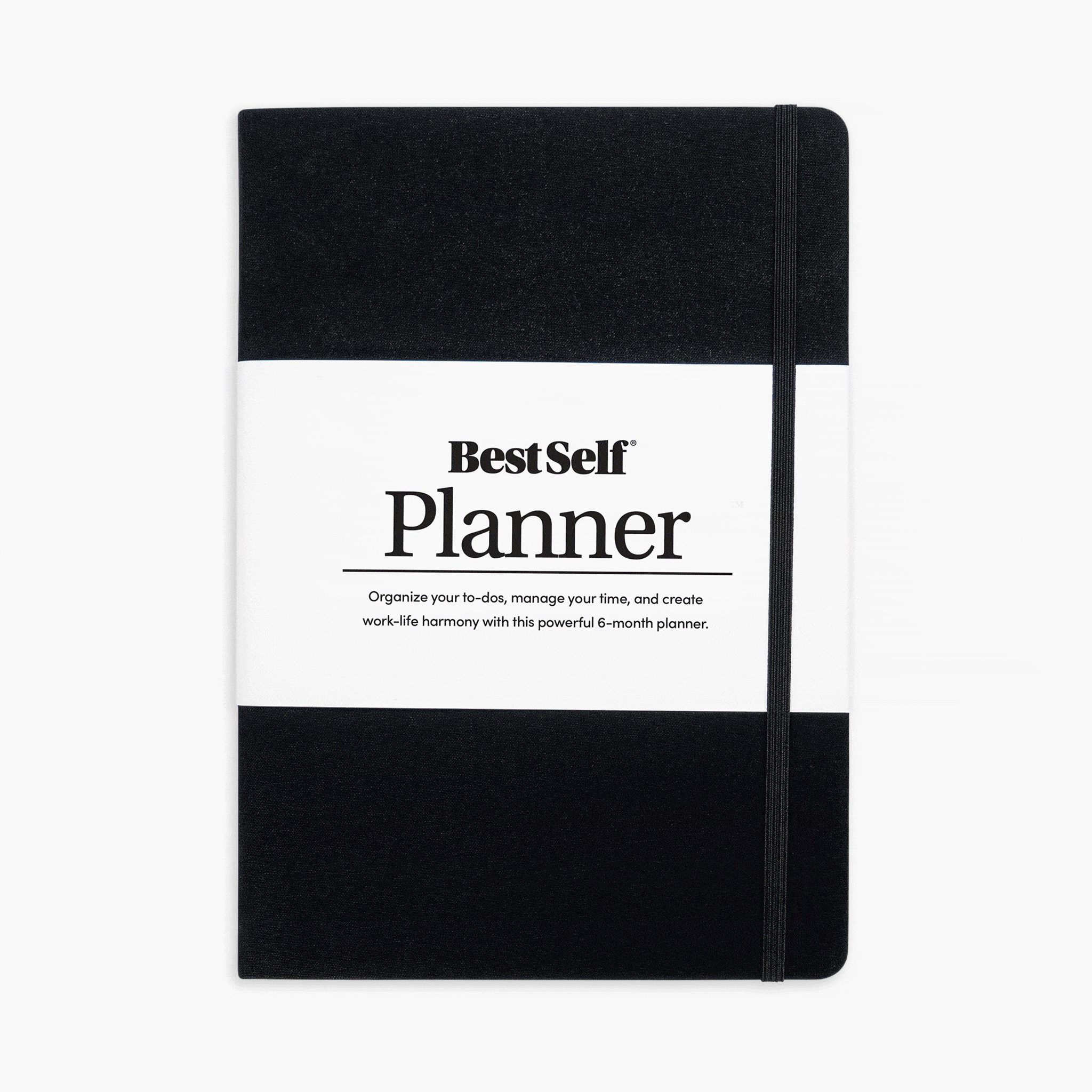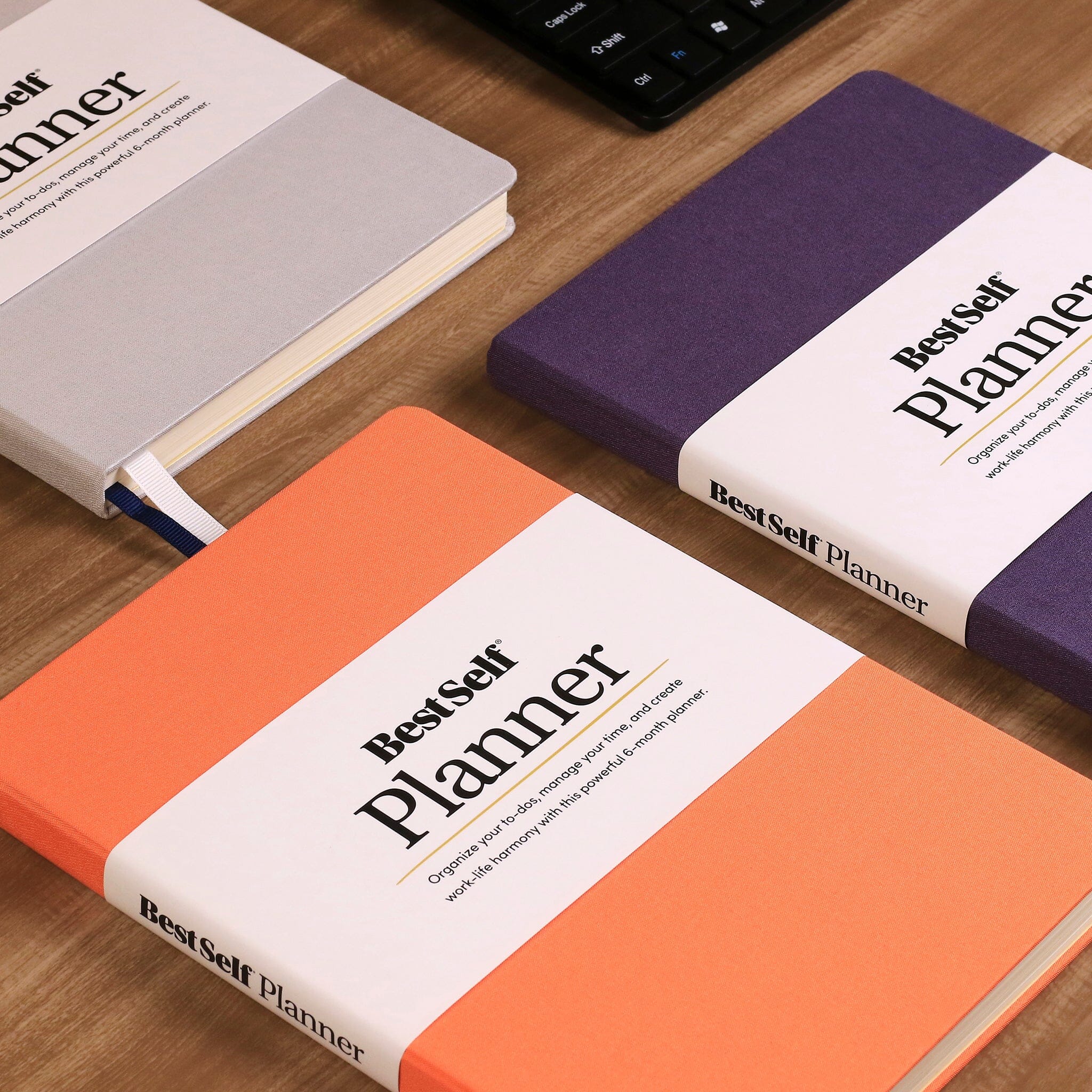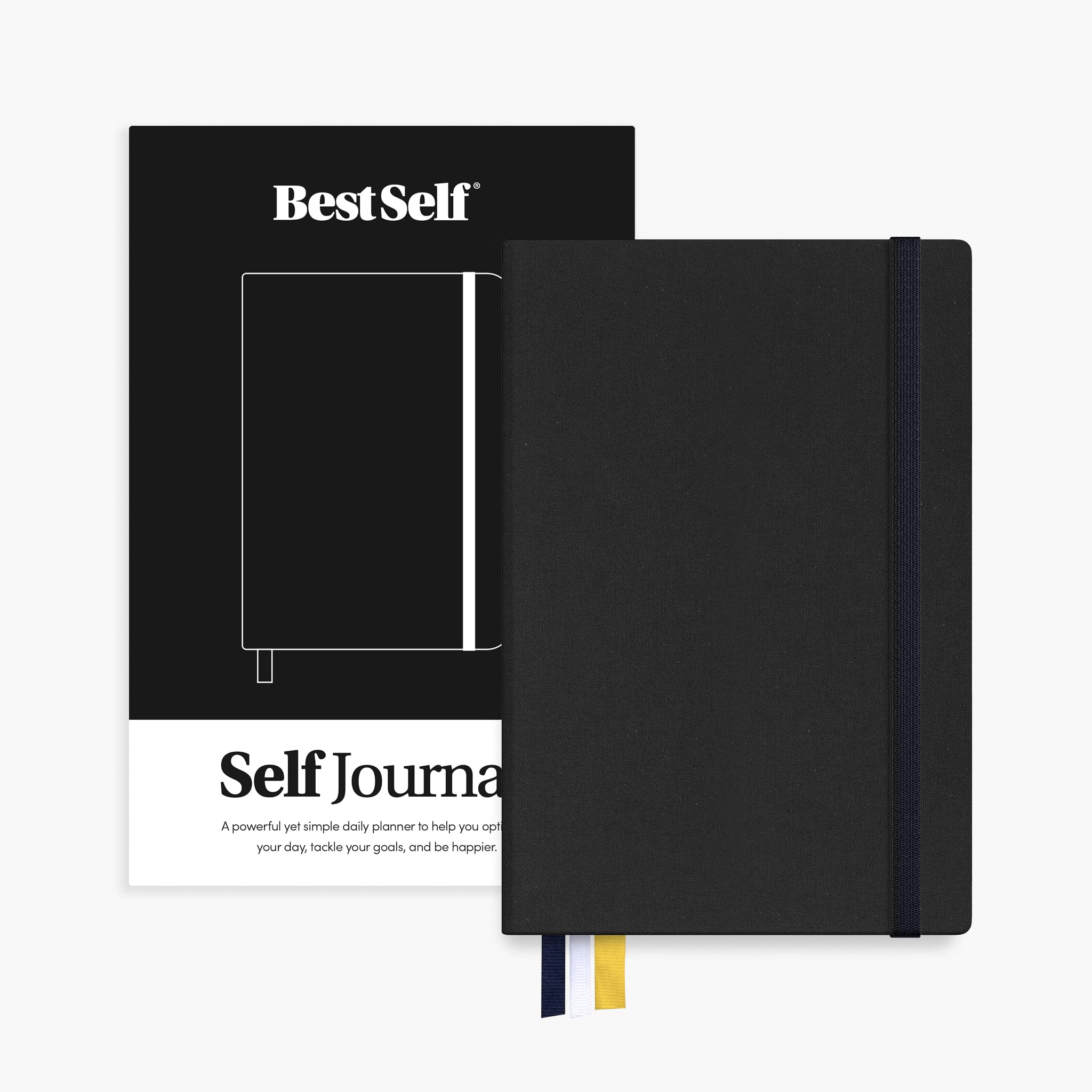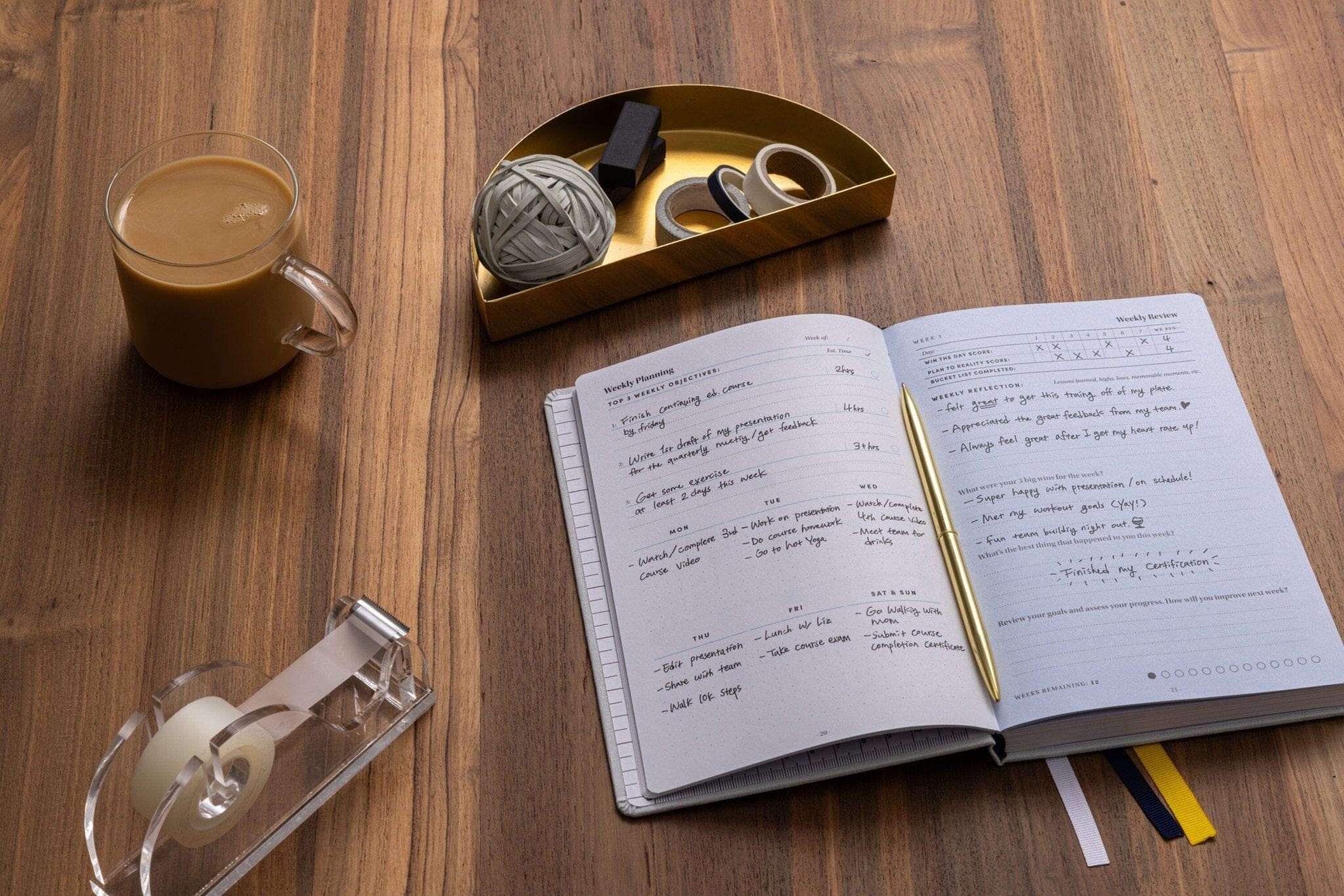Cathryn (00:03):
Alright, welcome to the second week of the Relationship Journal journey, and we hope last week's Relationship Snapshot Exercise helped you understand the areas in your relationship that are doing well, and what areas just need a little work. And don't worry, every relationship has something to work on. And if they don't, they're probably lying. So for this week's exercise, you're going to be building your love story. This is where you'll be looking back on your relationship and understanding how you felt at the time. And this can help grow your appreciation for your partner and also help with focusing on where you want to go. By understanding how each of you perceived past events, it can give you more insight into your partner's mind and can bring you closer together. And the point of doing this is to build your love maps with each other, to build your knowledge of what each other was thinking, each other's past, so that you can get to know each other for the future exercises, which might not be as easy as these, but this will help you grow and get to know each other. So let's dive into week two and the conversation with Rachel.
Cathryn (01:08):
So as we move into week two, before we get into the topic for this week, what do you feel is a good way to start the relationship check-in? Something that we want these couples to do every single week.
Rachel (01:21):
Yeah, well, you know, reflecting on what the last week had and then what is coming up. So without forgetting to ask how you're feeling in the moment. So a little bit of like "This past week was", and then "I'm currently feeling" and really with an emotion, not "I'm currently feeling like", "I'm currently feeling" and then what your hopes are for this next chapter.
Cathryn (01:52):
Great. And actually, if you look at the journal, you'll see a feelings wheel. So, you know, sometimes it's like, what is this word that I'm feeling? Because sometimes, you'll say, you know, frustrated when you mean something completely different. So make sure that you get used to using this so that you can really describe how you're feeling in a way that your partner will understand. Something else to consider is that we designed the check-ins to both, you know, look at the week that has passed, plan for the next week, but also to integrate some of the learnings from the exercise the week before. So, you know, this week you're going to be doing love story and next week, when you're doing the check-in, there's going to be a question or two prompts specifically around this idea of, okay, how did you integrate what you learned in the last week into your daily life? Because that is how we learn stuff. It's not from, you know, doing an exercise once and then forgetting everything that we learned. It's about doing the exercise, taking those learnings and then integrating it into our daily life.
Rachel (02:54):
Yes. And the more that we do it, the more that it becomes the feeling of what our normal is. So we use the word normal a lot to describe like, what is normal for us. So, you know, I feel things really deeply. And so for me, feeling deeply is my normal. For others, feeling that deeply is they're abnormal. And so it's important to understand that and get really used to using the feelings wheel and flexing the muscle of looking inward and "How am I feeling? Okay, let me tell that to my partner", because ultimately our emotions drive our behavior. And so if we don't understand our emotions, there is 0% chance of understanding our behavior.
Cathryn (03:35):
Awesome. All right. So when people are looking at this exercise about their love story, why is it important and why do we want people to capture theire love story in this way?
Rachel (03:47):
So we all have, if you and I were to sit down and say, you know, "Cathryn, let's talk about this event that we both attended and had a blast at five years ago." You and I would have completely different things that we remembered, that we latched on to, that we heard, that we experienced, that we smelled, that we saw, it would be a totally different story, even though we were at the same place. And so allowing, doing your relationship like this and showing the timeline, you get to see a bit into how your partner was feeling before, even if you didn't have those skills, then. So if right now in the present moment, you're like, "I can identify how I'm feeling", but maybe when you first met you didn't. You now have the hindsight to look back and say, "I was really excited. I was so nervous." And you almost get to understand how you got to where you are, through a new lens. And that is so cool.
Cathryn (04:50):
Yeah. I also think a shared past sometimes, there's events or things that to you didn't seem like a big deal, but to your partner, with something in the relationship that they felt was very important. So early on in my relationship, we went to the Women's March and we had this sort of, to me, I didn't even think anything of it and my wife later says like, "Oh, that was the moment that I was like, Oh, this girl's for me." And learning that later, I was like, "Oh, that's interesting" because it brought across some shared values and things that I hadn't even put together. But even, you know, obviously when you get more into a relationship and you go deeper, things are more complicated than they are at the beginning. But when we look back at the beginning, we remember all the ease and fun that we had. And so that can actually bring back good memories so that when we are, you know, maybe dealing with something more complex or more complicated, we have these warm and fuzzy feelings to better deal with, "Okay, I want to be with this person, like, let's work to get through this."
Rachel (05:51):
Totally. And talking about those memories like you're talking about, rebrings the chemicals in our brains, start to mimic the memory. And so we actually bring in lots of yummy chemicals that we were feeling when we were initially feeling that lust and attraction towards this person. So it's exciting. I'm excited for everybody.
Cathryn (06:12):
And that's why we put this at the start of the Relationship Journal, because as we go through, there's going to be more difficult exercises and we want you to start with this sort of positivity and shared memories so that you remember, "Okay, this is why we're here and this is where we're going to."
Rachel (06:28):
Yes. This also speaks to the "why" that we were talking about. You know, it's after charting the relationship, it's ask yourself if your "why" has changed at all as to why you're doing this to begin with. Sometimes new things come up or "Oh, wow. I totally forgot we used to fight about that all the time and now we haven't for six years." It's really cool to see progress.
Cathryn (06:51):
Yeah. And oftentimes in the day-to-day, we don't actually notice the progress until we look back and then we're like, oh. You don't notice the small little, 1% changes day to day but if you look back in time over a few years, you're like, "Oh my God, things are so different than they used to be."
Rachel (07:08):
Exactly. Exactly. So charting it like this, you can actually see that, which is really unique.
Cathryn (07:15):
Yeah. Okay. So once we do this love story exercise, what can we learn about our relationship and our partner from charting our love story and what should we look for specifically as we map this out?
Rachel (07:31):
So I think we can learn, similar to what you said, we can learn what the important pieces were and are for our partner. You know, when did they know that things felt different than other relationships? What was it about you at the beginning? We get to learn so, so, so much. And in terms of things to look out for, it sounds so ominous. I would just be on the lookout and be curious about total misalignments. So if one of you says, you know, "Our first date was incredible, it was a 10, we went to this restaurant and then we went back" and the other person's like, "That was one of the worst nights of my life". Instead of freaking out at that dissonance, lean into the curiosity and ask questions like, "Oh, really? I thought that was amazing. Why?" You know, like really get into that curious mindset and set the ego to the side. It happened in the past. It's already done, so you can't change it and you're just understanding the meaning. But that's what I would look at for.
Cathryn (08:41):
Yeah. And the fact that you're here doing this exercise together means that you are here doing this exercise together. And even if they had a terrible time, you're still here together. So they're here for a reason. So yeah, if you remove your ego from it and understand why, it's hard, it's difficult to do, especially if, you know, you're a 10 and they're a two, that you're like, "Oh God, what's wrong with me" or "What did I not see?" And so I think approaching it with curiosity, with, you know, most things in life helps us to better understand without placing judgment on something.
Rachel (09:16):
Exactly. Especially ourselves. You know, we're very quick to place judgement on ourselves. And so immediately seeing that lower rating, we're going to think, what did, what did I do wrong when really it could have been like that workday was really hard and you know, their best friend called and was crying that day. Like, who knows? It may have not even been about you, but we always make things about ourselves. So we need to sometimes take a step back and really ask ourselves, "Is this about me?" and ask the other person, "How much of that rating had to do with me and our date?"
Cathryn (09:56):
I remember a store, I don't remember specifically, but on the subway in New York, once this guy, when they're just rushing to get off the subway and like bump into you. And there's two ways to look at it. It's like, "Well, that guy's a d*ck" or "Oh goodness, that guy must be really stressed out, he has to be somewhere and he's super late and it's very important." And so that's two perspectives on the exact same situation. And if you choose to think not, this is like a judgment on them, or they did something wrong, or I did something wrong. It's like, what other options could be coming up for this person that could have them acting like this way that would be completely human.
Rachel (10:39):
Right? Like, what if someone they love just called them because they got into a car accident.
Cathryn (10:45):
Right.
Rachel (10:46):
You know, and they're hurrying up, but you're right. Like, if I was on the subway and someone did that, I would be like, "Ugh, why?" You know? And it's like, really most of the time it has nothing to do with us.
Cathryn (10:58):
Yeah. It's 99% of the time it doesn't. But in New York, it's also tough because there's just so many of them.
Rachel (11:07):
Yes. New York, New York adds an extra layer.
Cathryn (11:11):
Okay. So let's just say that we do this love story and we plan on it, okay, this is our shared past, and this is kind of what we're looking for. And we realize that the shared future or the view that we have, what we want in the future for us, does not look the same. How do we navigate the conversation with our partner when we see this sort of fork in the road of where we're going?
Rachel (11:39):
I first want to acknowledge and name that that is a very scary moment. Feeling out of alignment with your partner, when you thought that you were, is a very jarring experience. And I just want to validate that no matter the severity of the difference, it still feels jarring. Like, even if it's, "I thought you wanted three kids and now you put four kids", it could be that that is very challenging to receive. So I just want to name that feeling out of alignment sucks and that it's okay if you don't align completely. Most of the time we don't, because we don't do exercises like this to find out that we don't. We just are operating in silence about it. So remember that this information was there before, you just know it now. So you were never actually, if what you find out is that what you want in the future is not necessarily aligned, that was true before you knew it. And now you know it, which means that you can actually do something about it.
New Speaker (12:52):
And so where I would start is first acknowledging that shock and whatever, you know, pain, whatever comes up, anxiety, and then ask your partner questions. Put on that curiosity hat and understand the future that they're dreaming into. Because often there is more overlap than we think. We'll hear something like, "Well, I see myself living in X place with X kids" and we make assumptions. And often there's a lot more alignment than we think. So really asking questions and then flip it around and have your partner ask you questions to share and focus on the area where you overlap. Like the Venn diagram, focus on where the circles come together, not the parts that are on the edge. You know what parts are in alignment because your whole life does not have to align, right? You're still two individual human beings. Just because you're in a relationship doesn't mean that you have to meld together and like all the same things. In fact, that's, we don't like that very much. So it's okay to want different stuff. We just got to talk about it.
Cathryn (14:00):
Yeah. And I think just like you said, just because you didn't know it before, it doesn't mean that there wasn't something that you should know. And I think with any problem, there's the knowing you have a problem and then there's dealing with the problem. And when you don't know about the problem, you have two problems, you have the problem and then you have the fact that you don't know about it. And so, now you only have one problem. It's like, okay. And I wouldn't even say, it's a problem. It's just an understanding. And sometimes, shared futures are the future that you want and your partner wants, they might actually have values aligned, they're just explored in different ways. And you can understand, okay, you're getting this sense of adventure from wanting to live in, you know, all of these different countries, I'm getting it from this other thing, but we're actually looking for the same thing. And if you understand that, rather than placing like a, "Oh God, this is the end" on it, then you can...again, you're here for a reason and you're working on this together, which means that you want to stay together. And so don't play a sort of you talking about different things as a death sentence. It's just like, "Oh no, we have to explore where this goes to and what it is that we're trying to achieve from these different vehicles of finding whatever it is that we're looking for. "
Rachel (15:16):
Exactly. And that's a brilliant time to come back to your "why" that you talked about in the first thing, right. When things get hard, come back to the "why". Why are you doing this to begin with? And that's why I love this journal because it builds on itself and it keeps building.
Cathryn (15:35):
Yeah. And I think that's why we started the journal with this idea of like, "Why are you here and what does this relationship mean to you?" And really understanding like what would be missing from your life if you didn't have it. And I think a lot of times people don't appreciate something until they either lose it or they almost lose it. And so we don't want to get to that point. We want you to appreciate it and understand and know what will be missing before it is actually missing so you know what to work on. And this is just another piece to that puzzle.
Rachel (16:07):
Agreed. Agreed.
Cathryn (16:09):
All right. So if you haven't done the exercise yet, that's everything you need to know and how to approach it as you do it. No judgment. Just know that you're both on your individual journeys, you just happened to be together. And below this video, if you discover something about your partner or maybe you were on, you did have different shared futures, I'd love to know more about the conversation that happened after you completed the exercise.
New Speaker (16:32):
That was a great conversation. But now it's time to jump into your Relationship Journals and remember while the relationship exercise is once a week event, try to take what you've learned about your partner and apply it to the entire week. It will help you integrate and learn and actually remember the things that you're being taught about your partner. We're super excited to see you back next week for Week 3.














